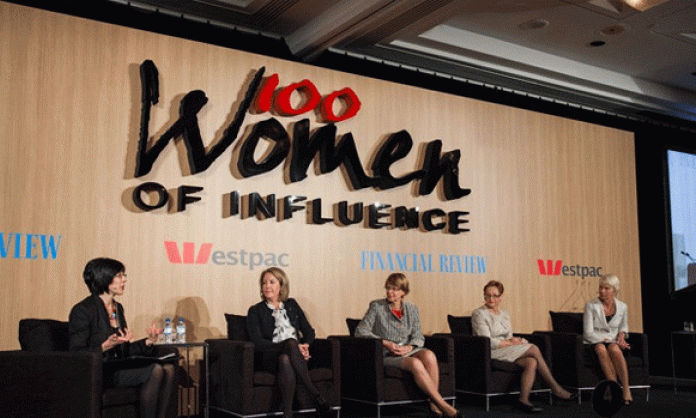A slew of articles in our mainstream dailies have been decrying the gender pay gap of the ever persecuted upper echelon of women managers and executives.
Detailing the grind that is life for women CEOs, the Financial Review ran one of the most preposterous headings: “Rich man, poor woman”.
Missing of course are the actual remuneration figures. I would posit that it’s not a word count issue but rather flows from a well-informed hunch that public sympathy would quickly evaporate.
CEOs on average make 63 times more than average earnings. Average statutory pay for ASX top 100 CEOs is a staggering $4.84 million. To most workers, “poor” isn’t exactly an apt description for a company executive, whatever their gender.
But, the argument goes, if we manage to close the gap and achieve equality amongst the corporate elite, surely equality will “trickle down” to the rest of us female plebs.
Experience tells us this is a lie.
Gail Kelly is a case in point. The now retired CEO of Westpac took home a staggering $13 million last financial year – straight out of the profit her company derived from gambling on the stock market and gouging fees and interest payments out of millions of customers.
She was one of the highest paid executives in the country. But while our “sister” in the boardroom was breaking records, the financial industry workforce suffers one of the greatest gender pay gaps: a 30 percent difference between women and men. Despite making up over half of the workforce, women in the financial sector continue to be concentrated in the lowest paid jobs.
The problem with Kelly wasn’t that she was exhibiting “male traits”. The problem is that she’s a boss. And as a boss, she profits from the systematic undervaluing of women workers’ labour. Being able to pay half the workforce less is a good way to improve that bottom line so loved by shareholders. And it certainly proved a boon for Kelly’s personal bank balance.
Take another “poor sister”: Transfield Services “chairman” Diane Smith-Gander. Her remuneration stems in part from the $1.2 billion government contract awarded to the company to administer the sadistic concentration camps on Manus and Nauru.
In the latter, female asylum seekers sleep in mouldy tents, line up for tampons in 40 degree heat and shower as male guards stand watch. All the while, they try to keep their children sane in these factories for mental illness. There have been numerous claims of guards sexually abusing and threatening women and children.
On her departure, Kelly gratuitously gave advice to women on how to get ahead. The secret, supposedly, is to “back yourself, be prepared to have a go” – as if the poverty and inequality that structure working class women’s lives can be overcome with just a bit of individual effort. Tell that to a female chicken processing worker in Melbourne’s western suburbs making little more than the minimum wage and faced with soaring electricity, food and childcare expenses.
A plucky attitude and a bit of self-belief aren’t going to catapult them into a plush leather armchair in the Collins Street business district.





